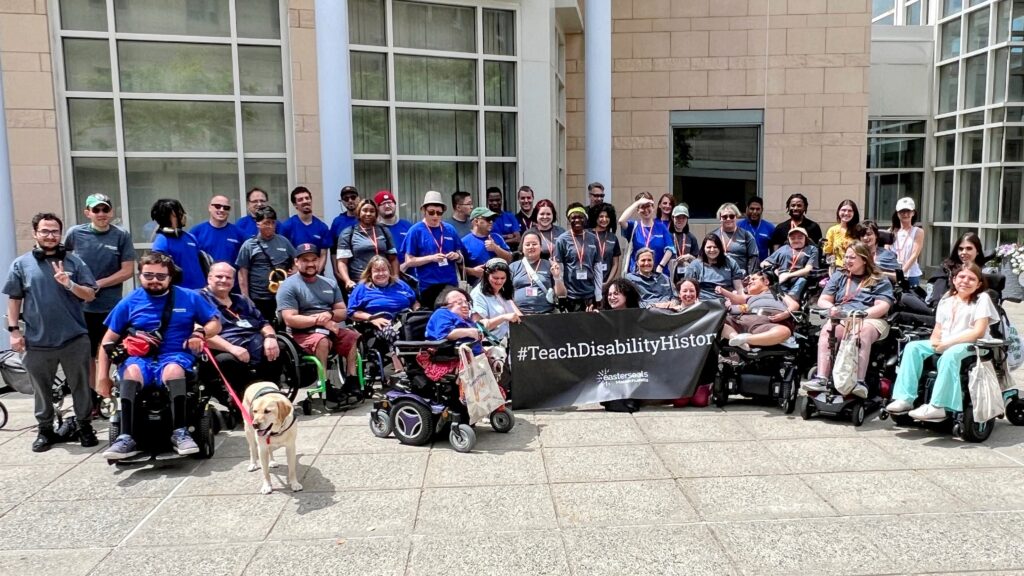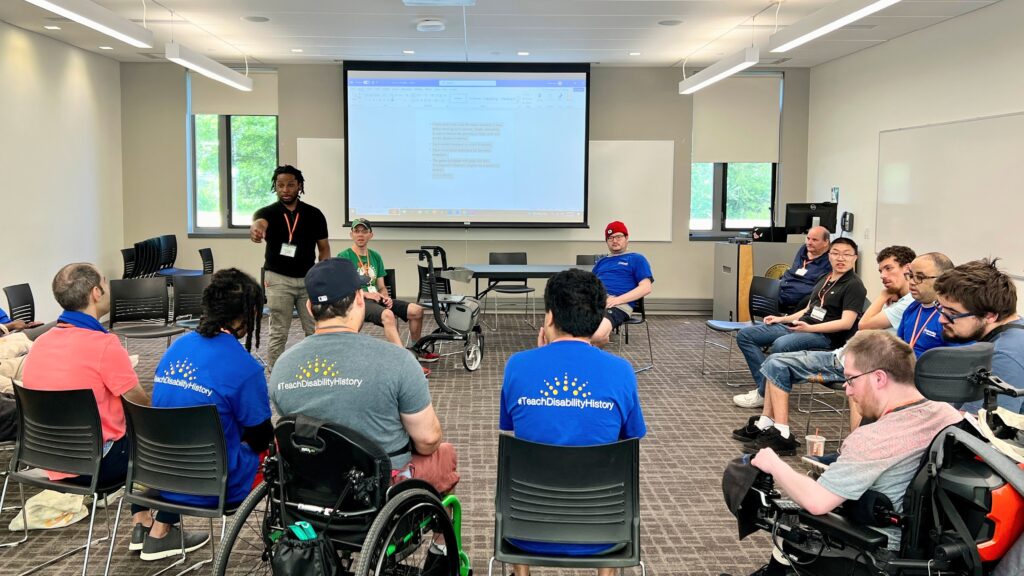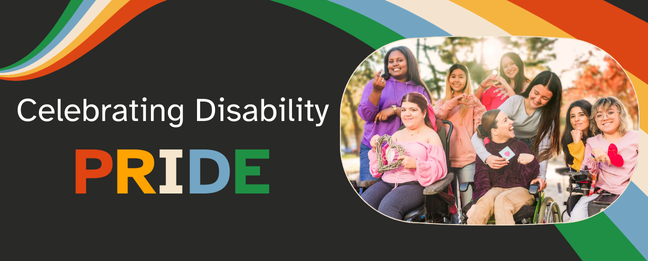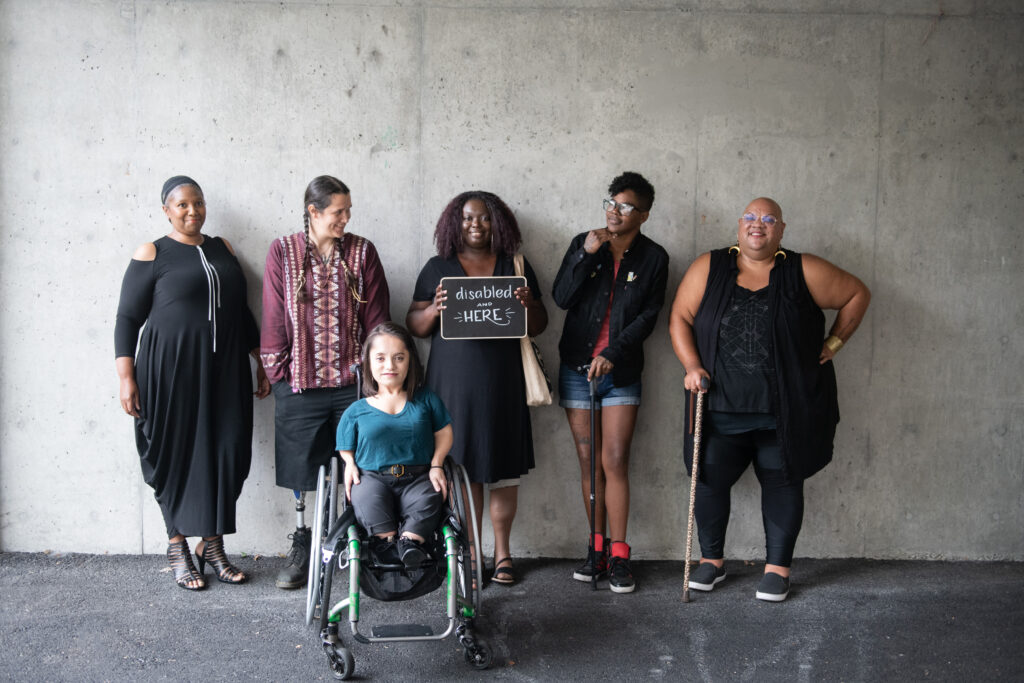
President Trump and Congress: “Thank You for Protecting the Nation’s Most Vulnerable Populations”
By: Angela Williams, President and CEO, Easterseals
On March 27, after being passed by both the House of Representatives and the Senate, President Trump signed the Coronavirus Aid, Relief and Economic Security Act (CARES Act) into law. When deployed, the result of the largest stimulus package in American history will authorize $2 trillion in aid to support businesses, hospitals, schools and other critical nonprofit organizations including Easterseals, which provides life-changing home- and community-based services and supports to the one in four Americans who live with disability in America today.
Congress deserves an emphatic applause for their bipartisan compassion to protect those in need and for their continued support during this national public health crisis, addressing immediate needs and the support that will be required throughout recovery from this pandemic. The entire nonprofit universe has been upended, and the recognition and resources provided through the CARES Act will help our great nation see its way through COVID-19. The legislation provides measures that allow nonprofit organizations to continue providing life-saving services and programs to our nation’s most vulnerable populations.
Further legislative strategies and interventions were enacted to support our nation’s nonprofits for the duration of the national public health crisis including:
- Emergency Small Business Loans. The legislation provides $562 billion to ensure that the Small Business Administration (SBA) has the resources to provide Economic Injury Disaster Loans (EIDL) that will help businesses in all 50 states and the District of Columbia remain open. The bill allows nonprofits and other applicants (with 500 or fewer employees) expedited access to capital through an Emergency Grant — an advance of $10,000 within three days to maintain payroll, provide paid sick leave and to service other debt obligations. To qualify, a business must have recorded a 50 percent loss in gross receipts in the current calendar quarter compared to the same three-month period in 2019.
- Charitable Giving Incentive. Before the CARES Act, only those who itemize their taxes could claim charitable donations. Its enactment creates a universal deduction of up to $300 in cash donations for those who don’t itemize their taxes. For those who do itemize, the bill lifts the cap on annual giving from 60 percent of adjusted gross income to 100 percent, and for corporate charitable giving, from 10 percent to 25 percent of taxable income. Deductibility on food donations from corporations increase from a 15 percent to 25 percent cap of taxable income. The provision applies for tax year 2020.
- Employee Retention Payroll Tax Credit. This creates a refundable payroll tax credit of up to $5,000 for each employee on the payroll when certain conditions are met, such as the entity had to be an ongoing concern at the beginning of 2020 and has seen a drop in revenue of at least 50 percent in the first quarter in 2020 compared to the first quarter in 2019. The credit is available each quarter until the company’s revenue exceeds 80 percent of the same quarter in 2019. Also, nonprofits that keep their employees on the payroll from February 15 to June 30 are eligible to have their loans forgiven, turning the loan into a grant.
- The Individuals with Disabilities Education Act (IDEA) and Every Student Succeeds Act (ESSA). The CARES Act provides more than $30 billion in emergency education funding for colleges, universities, states and local school districts. $13.5 billion in formula grants will help schools dealing with closures to meet the needs of students and teachers by purchasing technology for online learning. $14.25 billion is allocated to higher education to cover lost revenue, technology costs for distance learning and grants to students for food, housing and other expenses.
Nonprofit organizations are an essential element of America’s vibrant healthcare landscape. Although nonprofits and similar groups are seeking more federal assistance, there is widespread approval in hopes that more legislation and incentives will be created to ensure all Americans – including those whose lives depend on daily support from our nation’s nonprofits – are able to have their needs met for the duration of the COVID-19 public health emergency.
Recognizing the devastation the COVID-19 pandemic has wrought, we owe a tremendous debt of gratitude to those in Congress and at the White House who have worked overtime to ensure that the needs of nonprofits like Easterseals are addressed and our future viability is protected.
As a leading provider of services for people with disabilities, veterans and seniors, Easterseals’ National Network of 68 Affiliates also partners with caregivers in communities nationwide to assure quality care for the more than 1.5 million consumers and families it serves annually.




 “One of the strongest positive outcomes we always see, is that because this was an overnight event, we were able to support [Personal Care Assistant] needs if that’s something participants need to be involved,” she said. “[We also provide] other needs they may have that may be a barrier for them to participate in other overnight events. Just getting a chance to be overnight, away from their everyday environment, is always a strong part of this program.”
“One of the strongest positive outcomes we always see, is that because this was an overnight event, we were able to support [Personal Care Assistant] needs if that’s something participants need to be involved,” she said. “[We also provide] other needs they may have that may be a barrier for them to participate in other overnight events. Just getting a chance to be overnight, away from their everyday environment, is always a strong part of this program.”
 When I was a young adult, my family and I would go to medical conventions to learn new information and technologies that could help accommodate my needs while living with short gut syndrome. Short gut syndrome is so rare that these conventions were the only way that I ever got to see or meet other people who lived a similar experience to my own. I felt included, accepted and understood more there than anywhere else. Meeting all these young people like me who had the same challenges, the same desires, same hopes made me see that it was all possible if I was allowed to exist without the constraints and limitations put on me.
When I was a young adult, my family and I would go to medical conventions to learn new information and technologies that could help accommodate my needs while living with short gut syndrome. Short gut syndrome is so rare that these conventions were the only way that I ever got to see or meet other people who lived a similar experience to my own. I felt included, accepted and understood more there than anywhere else. Meeting all these young people like me who had the same challenges, the same desires, same hopes made me see that it was all possible if I was allowed to exist without the constraints and limitations put on me. 




Connect with us on social media